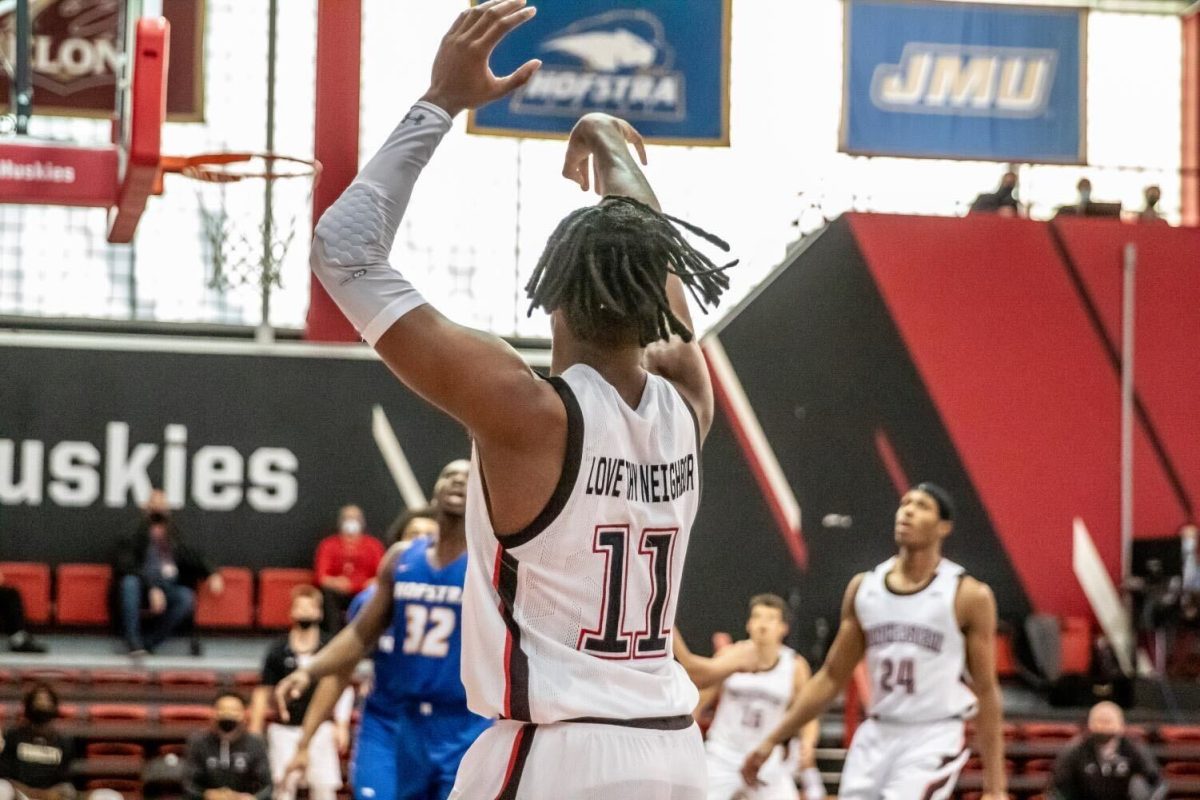Students react to new Chick-fil-A location in Copley Square
Chick-fil-A, a popular American chicken sandwich fast food chain, opened a new location in Copley Square Jan. 5 and has consistently served long lines.
February 2, 2022
Chick-fil-A, a popular American chicken sandwich fast food chain, opened a new location in Copley Square Jan. 5 and has consistently served long lines.
Chick-fil-A has become a cultural phenomenon, from TikToks of people creating their own meals with Chick-fil-A products and sharing their favorite menu hacks, to Kanye West’s song “Closed on Sunday,” which name drops the restaurant chain in his 2019 album “Jesus is King.”
Despite the craze, the chain has also repeatedly come under fire for its extensive history of supporting and financially funding anti-LGBTQ+ organizations such as The Salvation Army and the Fellowship of Christian Athletes. In a city well-known for being socially progressive like Boston, is there a place for a business with such a reputation?
“If people will spend their money there, I guess [I] would say it fits and do I see it being successful,” said Ryan Lewis, a fourth-year graphic and information design major that has eaten at other locations a few times.
However, Lewis, who identifies as gay, expressed strong disapproval of Chick-fil-A’s donation history, finding their label as a “homophobic” establishment insufficient.
“Homophobic could just mean they don’t like gay people in the restaurant,” Lewis said. “This chain goes a whole step further to actively seek out other organizations that will work against justice and equal opportunity and rights for gay people.”
Chick-fil-A has spent the past 10 years battling for a location in downtown Boston. During their first attempt to establish in Faneuil Hall in 2012, then Mayor Tom Menino openly expressed his disapproval of the chain. Northeastern students agreed, openly protesting the presence of Chick-fil-A in a city known for its influential queer population and culture.
In this same year, Chick-fil-A founder Truett Cathy confirmed to the Baptist Press that their business is “supportive of the family — the biblical definition of the family unit.” Meanwhile, Equality Matters, a section of the Media Matters Action Network, reported that the chain donated millions of dollars to Dan Cathy’s WinShape Foundation that funded anti-gay groups and organizations, some of which performed conversion therapy on young people.
Zach Greenwald, a second-year politics, philosophy and economics major and the vice president of sustainability within Northeastern’s Student Government Association, said he thinks Chick-fil-A’s dedication to conservative religious values doesn’t align with Boston culture.
“[Chick-fil-A’s] market is a more Christian culture centered community,” said Greenwald, who identifies as gay. “I don’t really think that that’s Boston.”
As a result of Chick-fil-A’s homophobic tendenices, he completely refuses to eat at the restaurant even in situations where friends made him go with them, and convinced his family to do the same.
“So I’m gay and then one of my older brothers is also gay … When [Chick-fil-A] started showing up where we’re from, at first we were like ‘Oh, should we go?’ And my brother and I were like ‘No,’” Greenwald said.
In November 2019, gearing up for 2020, Chick-fil-A took a new approach to their donations by announcing three distinct focus areas: homelessness, hunger and education. Some took this as an indication of the end of their controversial donations, though it has not been explicitly stated by the company. They still continue to give money to some religious-based organizations within the focus areas.
While homophobia is a common reason to avoid the popular chicken sandwich restaurant, Isabella Stein, a second-year environmental science and international affairs combined major, wants to remind students of the socioeconomic reasons to avoid corporations like Chick-fil-A.
“Living in an area that’s like actively being gentrified, it’s disappointing that there’s so much hype around corporate food,” Stein said. “Students should really be encouraged to get local and appreciate all of the small businesses Boston has to offer.”
Stein also urged students to consider the environmental impacts of fast food chains.
“A lot of really big, fast food companies that are serving meat are really, really awful to the environment. Their water usage is really high. They’re not treating their animals well, they’re not treating their land well, they’re using a lot of antibiotics. There’s a lot of research on that,” Stein said. “It’s just always good to be aware of that and use your money as a tool to advocate for what you believe in.”
Sources acknowledge that Chick-fil-A has the right to donate to anti-LGBTQ+ organizations, despite the moral implications.
“I would prefer they didn’t [donate to anti-LGBT+ organizations], but there’s legally nothing I can do to stop them,” Lewis said. “It doesn’t mean it’s the right thing to do, but they have a right to do that.”
The controversiality of Chick-fil-A makes it challenging to determine its success in the Boston community. Many students continue to take issue with the chain, and some call for them to demonstrate their alleged change through actions, rather than with words.
“To really absolve themselves of it would be to donate to organizations that promote LGBTQ services,” Greenwald said.
Editor’s note: The story was updated Wednesday Feb. 2 at 1:05 p.m. with the correct name of Chick-fil-A’s founder.







